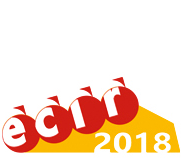
ecir 2011 论文列表Advances in Information Retrieval - 33rd European Conference on IR Research, ECIR 2011, Dublin, Ireland, April 18-21, 2011. Proceedings. |
Visual Exploration of Health Information for Children.
Finding Useful Users on Twitter: Twittomender the Followee Recommender.
Conversation Retrieval from Twitter.
Web Search Query Assistance Functionality for Young Audiences.
ARES: A Retrieval Engine Based on Sentiments - Sentiment-Based Search Result Annotation and Diversification.
Time-Surfer: Time-Based Graphical Access to Document Content.
Combination of Feature Selection Methods for Text Categorisation.
Fusion vs. Two-Stage for Multimodal Retrieval.
Towards Predicting Relevance Using a Quantum-Like Framework.
Processing Queries in Session in a Quantum-Inspired IR Framework.
Personal Blog Retrieval Using Opinion Features.
The Importance of the Depth for Text-Image Selection Strategy in Learning-To-Rank.
Role of Emotional Features in Collaborative Recommendation.
ATTention: Understanding Authors and Topics in Context of Temporal Evolution.
Towards Quantum-Based DB+IR Processing Based on the Principle of Polyrepresentation.
Simple vs. Sophisticated Approaches for Patent Prior-Art Search.
A Novel Re-ranking Approach Inspired by Quantum Measurement.
Back to the Roots: Mean-Variance Analysis of Relevance Estimations.
Combining Query Translation Techniques to Improve Cross-Language Information Retrieval.
Re-ranking for Multimedia Indexing and Retrieval.
How Far Are We in Trust-Aware Recommendation?
Reranking Collaborative Filtering with Multiple Self-contained Modalities.
Applying Machine Learning Diversity Metrics to Data Fusion in Information Retrieval.
Classic Children's Literature - Difficult to Read?
Video Retrieval Based on Words-of-Interest Selection.
Should MT Systems Be Used as Black Boxes in CLIR?
A Large-Scale System Evaluation on Component-Level.
Multilingual Log Analysis: LogCLEF.
Free-Text Search versus Complex Web Forms.
Representing Document Lengths with Identifiers.
A Generalized Method for Word Sense Disambiguation Based on Wikipedia.
Improving Query Focused Summarization Using Look-Ahead Strategy.
An Iterative Approach to Text Segmentation.
Passage Reranking for Question Answering Using Syntactic Structures and Answer Types.
To Seek, Perchance to Fail: Expressions of User Needs in Internet Video Search.
AutoEval: An Evaluation Methodology for Evaluating Query Suggestions Using Query Logs.
Simulating Simple and Fallible Relevance Feedback.
A User-Oriented Model for Expert Finding.
What Makes Re-finding Information Difficult? A Study of Email Re-finding.
Weight-Based Boosting Model for Cross-Domain Relevance Ranking Adaptation.
SkipBlock: Self-indexing for Block-Based Inverted List.
Within-Document Term-Based Index Pruning with Statistical Hypothesis Testing.
Efficient Compressed Inverted Index Skipping for Disjunctive Text-Queries.
Learning Models for Ranking Aggregates.
Second Chance: A Hybrid Approach for Dynamic Result Caching in Search Engines.
Introducing the User-over-Ranking Hypothesis.
The Power of Peers.
Bringing Why-QA to Web Search.
Rules of Thumb for Information Acquisition from Large and Redundant Data.
An Analysis of Time-Instability in Web Search Results.
Topical and Structural Linkage in Wikipedia.
Terms of a Feather: Content-Based News Recommendation and Discovery Using Twitter.
TEMPER: A Temporal Relevance Feedback Method.
Domain Adaptation for Text Categorization by Feature Labeling.
Text Classification: A Sequential Reading Approach.
Automatic People Tagging for Expertise Profiling in the Enterprise.
Smoothing Click Counts for Aggregated Vertical Search.
Combining Global and Local Semantic Contexts for Improving Biomedical Information Retrieval.
Discovering Fine-Grained Sentiment with Latent Variable Structured Prediction Models.
Incorporating Query Expansion and Quality Indicators in Searching Microblog Posts.
Exploiting Thread Structures to Improve Smoothing of Language Models for Forum Post Retrieval.
Comparing Twitter and Traditional Media Using Topic Models.
Dynamic Two-Stage Image Retrieval from Large Multimodal Databases.
Interactive Trademark Image Retrieval by Fusing Semantic and Visual Content.
Classifying with Co-stems - A New Representation for Information Filtering.
Text Retrieval Methods for Item Ranking in Collaborative Filtering.
Subspace Tracking for Latent Semantic Analysis.
Learning Conditional Random Fields from Unaligned Data for Natural Language Understanding.
The Limits of Retrieval Effectiveness.
ReFER: Effective Relevance Feedback for Entity Ranking.
Balancing Exploration and Exploitation in Learning to Rank Online.
Is a Query Worth Translating: Ask the Users!
Fractional Similarity: Cross-Lingual Feature Selection for Search.
Latent Sentiment Model for Weakly-Supervised Cross-Lingual Sentiment Classification.
Peddling or Creating? Investigating the Role of Twitter in News Reporting.
Topic Classification in Social Media Using Metadata from Hyperlinked Objects.
A Link Prediction Approach to Recommendations in Large-Scale User-Generated Content Systems.
Summarizing a Document Stream.
In Search of Quality in Crowdsourcing for Search Engine Evaluation.
Design and Implementation of Relevance Assessments Using Crowdsourcing.
A Methodology for Evaluating Aggregated Search Results.
On the Contributions of Topics to System Evaluation.
Enhancing Deniability against Query-Logs.
Caching for Realtime Search.
Are Semantically Related Links More Effective for Retrieval?
Clash of the Typings - Finding Controversies and Children's Topics Within Queries.
Modeling Answerer Behavior in Collaborative Question Answering Systems.
A Joint Model of Feature Mining and Sentiment Analysis for Product Review Rating.
Improving Tag-Based Recommendation by Topic Diversification.
A Comparative Experimental Assessment of a Threshold Selection Algorithm in Hierarchical Text Categorization.
User-Related Tag Expansion for Web Document Clustering.
Text Classification for a Large-Scale Taxonomy Using Dynamically Mixed Local and Global Models for a Node.
The Value of User Feedback.
Ad Retrieval Systems in vitro and in vivo: Knowledge-Based Approaches to Computational Advertising.
IR Research: Systems, Interaction, Evaluation and Theories.

